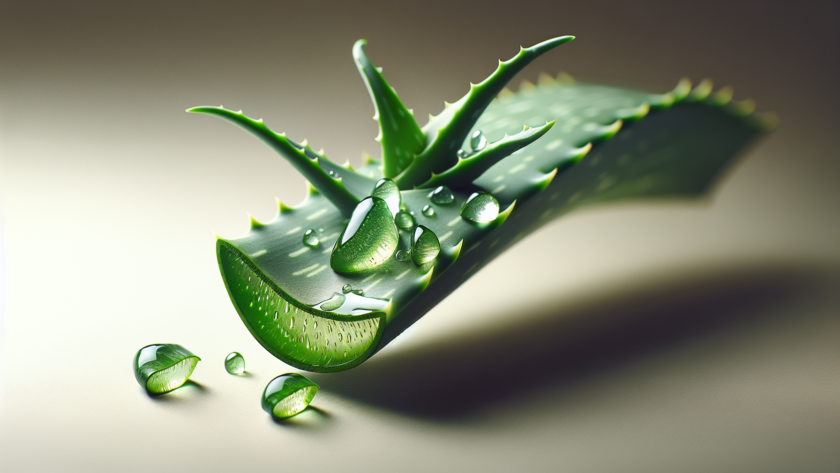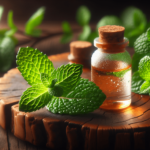Having dry skin can be a frustrating and uncomfortable experience. Itchy and flaky skin can make you feel self-conscious and can even lead to more serious problems like eczema. In this article, we will explore simple and effective ways to moisturize your dry skin, helping you regain that healthy and radiant glow. So, say goodbye to dryness and hello to smooth and hydrated skin with these easy-to-follow tips!
Understanding Dry Skin
Dry skin is a common condition that affects many people, and it occurs when the skin lacks the necessary moisture and oils to stay hydrated. Understanding the causes and symptoms of dry skin is essential in order to effectively manage and treat the condition.
Causes of Dry Skin
There are several factors that can contribute to the development of dry skin. One of the main causes is environmental factors, such as cold weather, low humidity levels, and exposure to harsh chemicals. Additionally, certain lifestyle habits, such as excessive bathing or showering, using harsh soaps, and not moisturizing regularly, can also lead to dryness. Medical conditions, like eczema, psoriasis, and thyroid disorders, can also cause dry skin.
Symptoms of Dry Skin
Dry skin can present itself in various ways, and it is important to be able to recognize the symptoms. Common signs of dry skin include itching, flaking, redness, rough or tight skin, and the appearance of fine lines or cracks. In severe cases, dry skin can cause deep cracks that may bleed or become infected.
Common Mistakes That Aggravate Dry Skin
In our efforts to combat dry skin, we may unknowingly aggravate the condition by making certain mistakes. One common mistake is using hot water when showering or bathing, as this can strip the skin of its natural oils. Another mistake is using harsh or fragranced soaps, which can further dry out the skin. Additionally, over-exfoliating or using abrasive scrubs can lead to irritation and dryness. It is important to avoid these common mistakes to prevent further damage to the skin.
Choosing the Right Moisturizer
Choosing the right moisturizer plays a crucial role in effectively hydrating and nourishing dry skin. With the wide variety of moisturizers available on the market, it can be overwhelming to find the perfect one for your skin type.
Identifying Your Skin Type
Before selecting a moisturizer, it is important to identify your skin type. Dry skin is characterized by a lack of oil production and a tendency to feel tight or rough. If you have dry skin, look for moisturizers specifically formulated for dry or sensitive skin. These moisturizers often contain ingredients that provide deep hydration and help repair the skin’s protective barrier.
Key Ingredients to Look For
When choosing a moisturizer for dry skin, look for key ingredients that have hydrating and nourishing properties. Hyaluronic acid is a popular ingredient known for its ability to hold moisture in the skin, providing long-lasting hydration. Glycerin is another important ingredient that helps attract and retain moisture in the skin. Additionally, moisturizers enriched with natural oils like jojoba, almond, or avocado oil can provide further nourishment to dry skin.
Avoiding Harmful Ingredients
While selecting a moisturizer, it is important to avoid ingredients that can potentially irritate or dry out the skin further. Alcohol-based products, artificial fragrances, and dyes should be avoided as they can cause skin irritation. Instead, opt for products that are labeled as fragrance-free and contain gentle, soothing ingredients.
Establishing a Skincare Routine
Establishing a proper skincare routine is essential for maintaining the health and hydration of dry skin. A consistent routine can help replenish moisture, soothe irritation, and promote overall skin health.
Cleansing and Exfoliating
When it comes to cleansing dry skin, it is important to choose a gentle cleanser that does not strip away the skin’s natural oils. Look for mild, non-foaming cleansers that are specifically formulated for dry or sensitive skin. Avoid using hot water and opt for lukewarm water instead, as hot water can further dry out the skin. Exfoliation should be done with caution, as over-exfoliating can cause irritation. Use a gentle exfoliator once or twice a week to remove dead skin cells and promote cell turnover.
Toning and Balancing
After cleansing, it is important to tone the skin to restore its pH balance and remove any remaining impurities. Look for alcohol-free toners that contain hydrating ingredients like rose water or chamomile extract. These toners can help soothe the skin and prepare it for the next step in your skincare routine.
Applying Moisturizer
After toning, it is crucial to apply a moisturizer to lock in hydration and nourish the skin. Take a pea-sized amount of moisturizer and gently massage it into your skin using upward circular motions. Pay extra attention to areas that are prone to dryness, such as the cheeks, forehead, and chin. Allow the moisturizer to fully absorb before applying any makeup or sunscreen.
Moisturizing Techniques
Apart from choosing the right moisturizer, proper application techniques can also make a significant difference in hydrating dry skin.
Hydrating From Within
While external moisture is important for dry skin, it is equally important to hydrate your body from within. Drinking an adequate amount of water throughout the day can help replenish moisture levels in the skin. Additionally, consuming hydrating foods like watermelon, cucumbers, and oranges can also contribute to overall skin hydration.
Applying Moisturizer to Damp Skin
To maximize the effectiveness of your moisturizer, consider applying it to damp skin. After cleansing or showering, gently pat your skin dry with a towel, leaving some moisture on the surface. Apply your moisturizer immediately while the skin is still slightly damp. This helps to lock in the moisture and allows the moisturizer to penetrate deeper into the skin.
Using Light, Patting Motions
When applying moisturizer, it is important to use light, patting motions instead of rubbing it vigorously into the skin. This helps to prevent any unnecessary tugging or pulling on the skin, which can lead to irritation. Patting the moisturizer gently into the skin allows for better absorption and promotes a smooth, hydrated complexion.
Protecting Your Skin
Protecting your dry skin from external factors is crucial in maintaining its health and preventing further dryness.
Using Sunscreen
Sunscreen is essential for protecting the skin from harmful UV rays, which can cause further damage and dryness. Look for a broad-spectrum sunscreen with an SPF of at least 30 and apply it generously to all exposed areas of skin, including the face, neck, and hands. Reapply sunscreen every two hours, especially if you are spending prolonged periods of time outdoors.
Avoiding Harsh Weather Conditions
Extreme weather conditions, such as cold winds or dry climates, can worsen dry skin. In cold weather, protect your skin by wearing a scarf or a hat to cover your face. During dry weather, use a humidifier to add moisture to the air and prevent the skin from drying out.
Wearing Protective Clothing
To prevent dry skin, it is important to wear protective clothing when exposed to harsh conditions. Opt for clothing made from natural, breathable fibers like cotton or linen to avoid irritation. Additionally, wearing gloves and socks can help protect your hands and feet from becoming dry and cracked.
Additional Remedies for Dry Skin
In addition to a proper skincare routine, there are several remedies that can provide relief and additional hydration for dry skin.
Using Humidifiers
Using a humidifier in your home can help add moisture to the air, which in turn can hydrate your dry skin. Place a humidifier in the rooms you spend the most time in, such as the bedroom or living room. This can provide a continuous source of moisture and help alleviate dryness.
Avoiding Long Hot Showers
While a hot shower may feel relaxing, it can actually contribute to further dryness of the skin. Hot water can strip the skin of its natural oils, leaving it feeling dry and tight. Instead, opt for shorter, lukewarm showers to avoid excessive moisture loss.
Using Gentle Cleansing Products
Choosing mild, gentle cleansing products is essential for dry skin. Look for cleansers that are specifically formulated for dry or sensitive skin and avoid those that contain harsh surfactants or sulfates. Using gentle cleansing products can help maintain the skin’s natural moisture balance and prevent excessive dryness.
Dietary Considerations
In addition to topical remedies, maintaining a healthy diet can also contribute to overall skin health and hydration.
Hydrating Foods and Beverages
Including hydrating foods and beverages in your diet can have a positive impact on your skin’s moisture levels. Foods such as watermelon, cucumber, berries, and leafy greens are not only nutritious but also contain a high water content, which can help hydrate your skin from within. Drinking an adequate amount of water throughout the day is also essential in maintaining hydrated skin.
Essential Nutrients for Skin Health
Certain nutrients play a vital role in maintaining healthy, hydrated skin. Omega-3 fatty acids found in salmon, walnuts, and flaxseeds can help improve skin elasticity and reduce inflammation. Vitamins A, C, and E, which can be found in fruits, vegetables, and nuts, are antioxidants that protect the skin from damage and aid in the production of collagen.
Foods to Avoid
Certain foods can contribute to skin dryness and should be consumed in moderation. Processed foods that are high in sugar and refined carbohydrates can cause inflammation and lead to dry, dull skin. Additionally, excessive consumption of caffeinated beverages and alcohol can dehydrate the body and contribute to dryness.
Natural Remedies for Dry Skin
If you prefer natural remedies, there are several ingredients known for their moisturizing properties that can be used to alleviate dry skin.
Coconut Oil
Coconut oil is a popular natural remedy for dry skin due to its high concentration of fatty acids. These fatty acids help retain moisture in the skin and create a protective barrier. Apply a small amount of coconut oil directly to the skin and massage it in until fully absorbed. However, it is important to note that coconut oil may not be suitable for everyone, and it is best to patch test before using it extensively.
Honey
Honey is another natural ingredient known for its moisturizing and antibacterial properties. Apply a thin layer of honey to your skin and leave it on for 15 to 20 minutes before rinsing off with warm water. The natural sugars in honey help attract and retain moisture, leaving your skin feeling soft and hydrated.
Aloe Vera
Aloe vera is a soothing plant that has been used for centuries to treat various skin conditions, including dryness. Apply a layer of pure aloe vera gel to your skin and leave it on for 15 to 20 minutes before rinsing off. Aloe vera contains vitamins and minerals that help hydrate and heal the skin, providing relief from dryness and irritation.
When to Seek Professional Help
While most cases of dry skin can be managed effectively with home remedies and lifestyle changes, there are instances where it is important to seek professional help.
Persistent Dryness and Discomfort
If your dry skin persists despite following a consistent skincare routine and using appropriate moisturizers, it may be a sign of an underlying condition. In this case, it is best to consult a dermatologist who can evaluate your skin and recommend appropriate treatments or medications.
Skin Conditions That Mimic Dryness
Certain skin conditions can mimic the symptoms of dry skin, making it difficult to differentiate between the two. Conditions like eczema, psoriasis, and dermatitis can cause dry, itchy skin. If you suspect that your dry skin may be due to an underlying skin condition, it is important to seek medical advice for an accurate diagnosis and appropriate treatment.
Consulting a Dermatologist
If your dry skin is severe, persistent, or accompanied by other concerning symptoms such as excessive redness, bleeding, or open sores, it is recommended to consult a dermatologist. A dermatologist can assess your skin, provide a personalized treatment plan, and offer medical-grade moisturizers or prescription medications if needed.
Conclusion
Understanding how to effectively moisturize dry skin is essential in order to alleviate discomfort and promote healthy, hydrated skin. By choosing the right moisturizer, establishing a regular skincare routine, using proper moisturizing techniques, and protecting your skin from external factors, you can take significant steps towards achieving a well-hydrated complexion. Additionally, incorporating dietary considerations, natural remedies, and seeking professional help when needed can further contribute to the overall health and well-being of your dry skin. Remember, caring for your skin is an ongoing process, so be patient and consistent in your efforts, and embrace the journey to healthier, more nourished skin.




